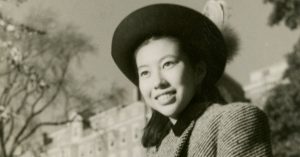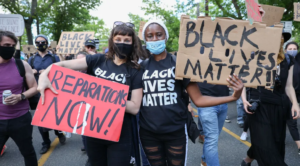A few years back, I took an evening ride-along with an officer in Shoreline who kept a card on her dashboard with on-duty affirmations. First on the list: “I’m not going to f-ing die today.”
Seeing this stark priority — and similarly fearful and anger-laden sentiments that followed — made me think about the role that threats of death play in police work and culture. On a daily basis, officers’ lives are pervaded with actual death, near death, and subtle and not-so-subtle reminders of death: All embedded in a culture that stokes death fears.
In establishing better ways to respond to community needs and crime, those seeking major shifts in policing will benefit from understanding the role that death anxiety plays in officer behaviors. For example, countless studiesdemonstrate that people are more prejudiced when reminded of their mortality. These findings can help to explain disproportionate use of force on people of color, and on African Americans in particular, in situations where death is salient.
Cultural anthropologist Ernest Becker won the Pulitzer Prize in 1974 for “The Denial of Death,” arguing that the uniquely human awareness of our inevitable death gives rise to potentially debilitating existential terror. We manage this terror by embracing cultural worldviews: A set of shared beliefs about reality that reduce death anxiety by giving us a sense that we are persons of value in a world of meaning.
Death fears influence the personal choices we make, including work, hobbies, relationships, sports and politics. Culture provides markers for our successes and failures, moral approval or disapproval, and ultimately an assessment of whether our lives have meaning. Feeling that life is meaningful, including belonging and contributing to something larger than ourselves, alleviates death anxiety.
Hundreds of studies conducted worldwide have shown that when reminded of our mortality — consciously or subconsciously — we seek to affirm our cultural worldviews and bolster our self-esteem: We prefer our own kind, shun out-groups, defend the status quo, and double down on our core beliefs. For example, judges sentence more harshly; people exhibit greater hostility toward those with differing political beliefs; and support increases for leaders who promise to rid the world of evil.
Some studies of death anxiety provide data on issues central to policing. A 2012 study in the International Journal of Intercultural Relations found that, in response to a death reminder, white Americans were more likely to identify an ambiguous object as a gun rather than a tool — especially if participants were also subliminally exposed to Black faces.
In a 2015 investigation of death anxiety in police culture published in the American Journal of Criminal Justice, the authors note an explicit “us versus them” mentality as well as a high focus on self-preservation in police training. A combination of frequent mortality reminders plus suspects who are almost always seen as dangerous “others” likely results in officers being highly motivated to uphold an “us versus them” worldview.
This may aid our understanding of shootings of unarmed suspects; the authors note several incidents where shootings of unarmed suspects were preceded by a police officer having recently been shot nearby: Us versus Them.
Consistent with this view, a 2018 Seattle University study linked increases in #BlackLivesMatter hashtags and mentions on social media with an increase in minorities — but not whites — being killed by police in the same day. In addition, an increase in officer casualties was associated with an increase in the number of minorities killed by police and a decrease in the number of whites killed by police for the same day.
The authors observed, “Law enforcement officers are hired and trained to support the dominant cultural worldview of the communities they serve through the enforcement of codified legal norms. Any increase in mortality salience should increase their defense of that worldview.”
The human condition takes a toll on all of us, and perhaps especially on police due to pervasive mortality salience and the police culture built around it. This raises many questions about who is best suited for police work, the impact of the work on wellness and how to manage the psychological realities for those who enforce our laws.
Let me be clear: Understanding the psychology behind biased behaviors does not excuse them. Racism, sexism, and an array of other “isms” are part of the very air we breathe in America — views that are reinforced daily through images and story lines that dominate media. Each of us has a duty to actively resist and unlearn these false constructs.
Awareness of the role death anxiety plays in our behaviors has the power to change our culture at both the individual and systemic levels. To address this phenomenon systemically, those seeking reform should enlist research psychologists as partners to help inform and normalize consideration of the psyche in evaluating police behaviors. They can also establish more sophisticated mental-fitness guidelines and recommendations. For example, it’s not uncommon for officers involved in one shooting to be involved in another. Given this, should officers still serve in armed capacities after having been involved in a shooting or other traumatic incident?
Having worked on policing issues throughout my career, including my role in police oversight, as well as years of examining psychological motivations as executive director for the Ernest Becker Foundation, I believe that a wholesale paradigm shift is not only possible but necessary. But to achieve this, we must include a focus on our universal human psychology because in some circumstances, it could be the death of us.Deborah Jacobs is the executive director of the Ernest Becker Foundation and former director of the King County Office of Law Enforcement Oversight.




